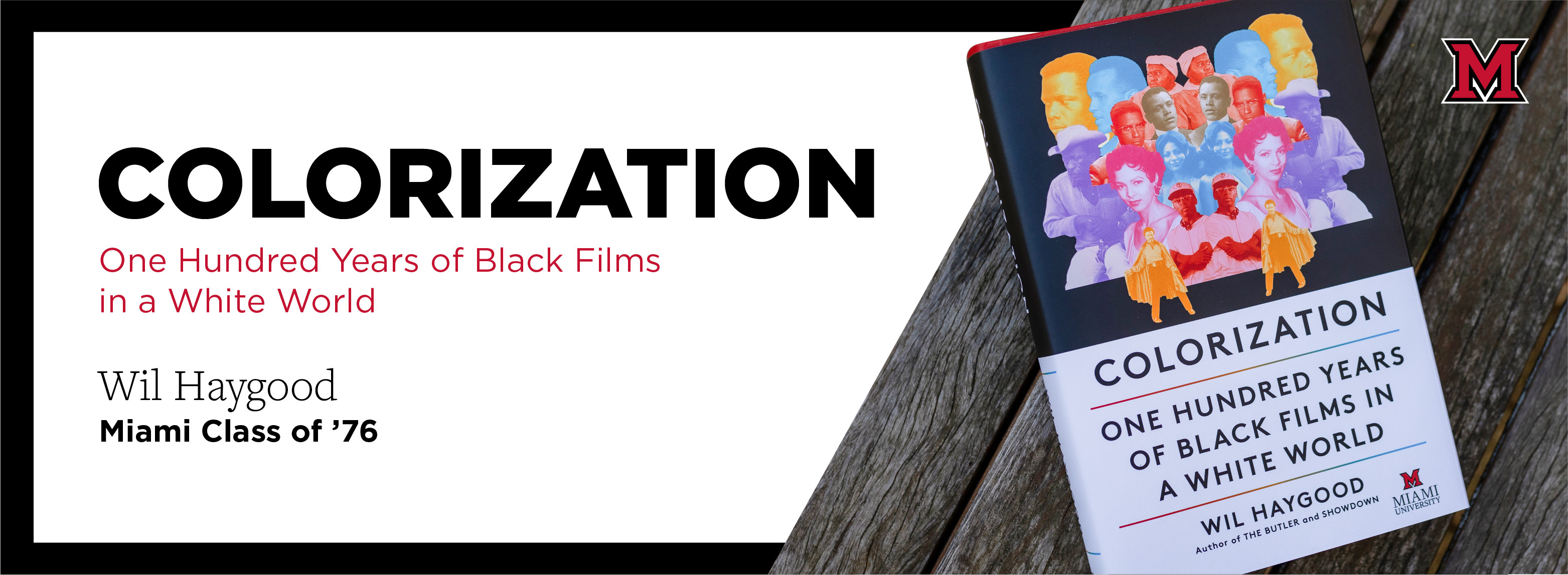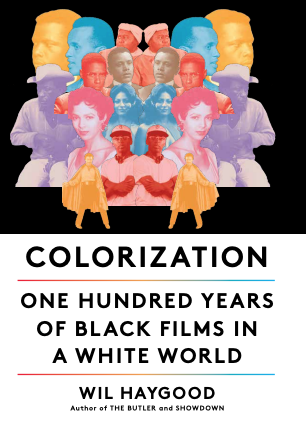
Freedom Film Festival
During the Freedom Film Festival (November 8-12, 2021), Miami University alumnus and Boadway Distinguished Scholar-in-Residence Wil Haygood will be featured, along with the release of his new book, Colorization: One Hundred Years of Black Films in a White World, (Random House, October 2021).
“Representation in film — or lack thereof — has long interested me,” said Haygood. “I spent the past several years working on Colorization: One Hundred Years of Black Films in a White World. The book highlights the long struggle of Blacks to rise in the film industry. These are stories of hard struggle, many dreams, and sometimes triumph.”
Haygood is the author of The Butler: A Witness to History, which was turned into a 2013 film starring, among others, Oprah Winfrey, Forest Whitaker, Mariah Carey, and Jane Fonda.
Colorization: One Hundred Years of Black Films in a White World will be available where you can buy books, as well as direct from the publisher.
Wil Haygood
Accomplished journalist and award-winning author Wil Haygood grew up in Columbus, Ohio, and entered Miami University in 1972. As in high school, Haygood was determined to earn a spot on Miami's basketball team, and during the 1973–1974 season, he was a proud member of the Miami University junior varsity team. Wil graduated from Miami in 1976 with a degree in urban planning, but exhibiting a knack for storytelling early on, he began in journalism at the Charleston (West Virginia) Gazette and two years later, moved to the Pittsburgh Post-Gazette.

Synopsis of Colorization: One Hundred Years of Black Films in a White World
An unprecedented, groundbreaking examination of one hundred years of Black cinema, using the struggles and triumphs of filmmakers and actors and the achievements of the films themselves to explore Black culture, the civil rights movement, and race relations in America.
In 1915, D. W. Griffith’s “The Birth of a Nation” glorified the Ku Klux Klan, became Hollywood’s first blockbuster, and, as Wil Haygood writes, showed Black Americans that they “had yet one more enemy: cinema.” From that point forward, Haygood gives us an incisive, fascinating, and little-known history, spanning more than a century, of Black artists in the film industry, onscreen and behind the scenes.

From Jim Crow and segregation’s effect on censorship to white flight’s changing the landscape of urban movie theaters to often tragic interracial romances, from the assassination of Malcolm X to the O. J. Simpson trial and the Black Lives Matter movement, Haygood makes clear the effects of changing racial politics and events on the business of making moves and the on-screen results. Haygood recounts the remarkable careers of early film luminaries like Oscar Micheaux, the first mainstream Black filmmaker in America, and Hattie McDaniel, the first Black Oscar winner, who was barred from sitting with the rest of the “Gone With the Wind” cast at the 1939 Academy Awards. Considering the films themselves—including “Imitation of Life,” “Porgy and Bess,” the Blaxploitation films of the seventies, “Do The Right Thing,” “Twelve Years a Slave,” and “Black Panther”—he also sheds new light on the lives and significance of a wide range of historic and contemporary figures: Sidney Poitier, Berry Gordy, Alex Haley, Sike Lee, Billy Dee Williams, Richard Priory, Halle Berry, Ava DuVernay and Jordan Peele, among many others. An important and timely book, Colorization gives us both a trailblazing history of Black cinema and a pioneering perspective on race and racism in twentieth-and twenty-first century America.
—Penguin Random House (Oct. 2021)
